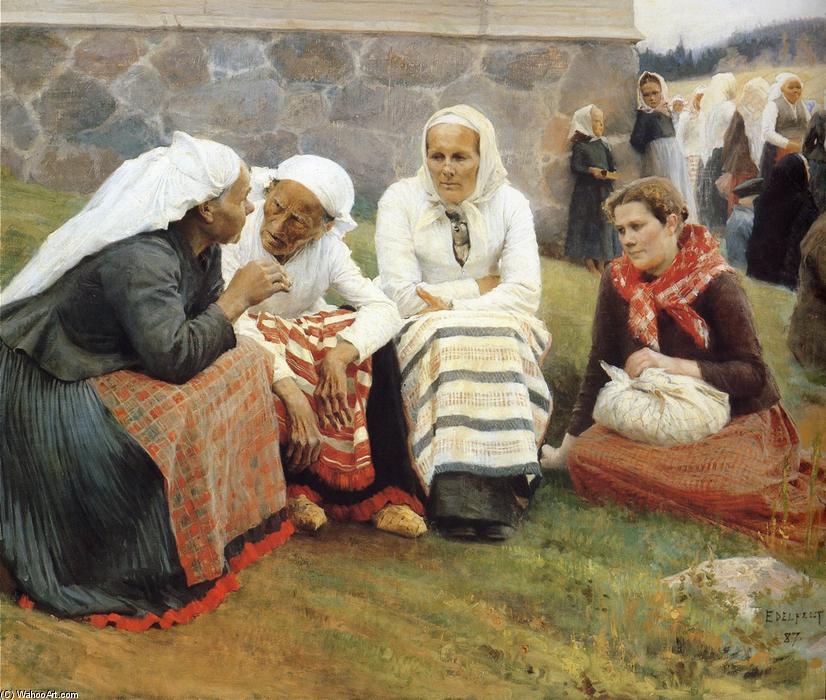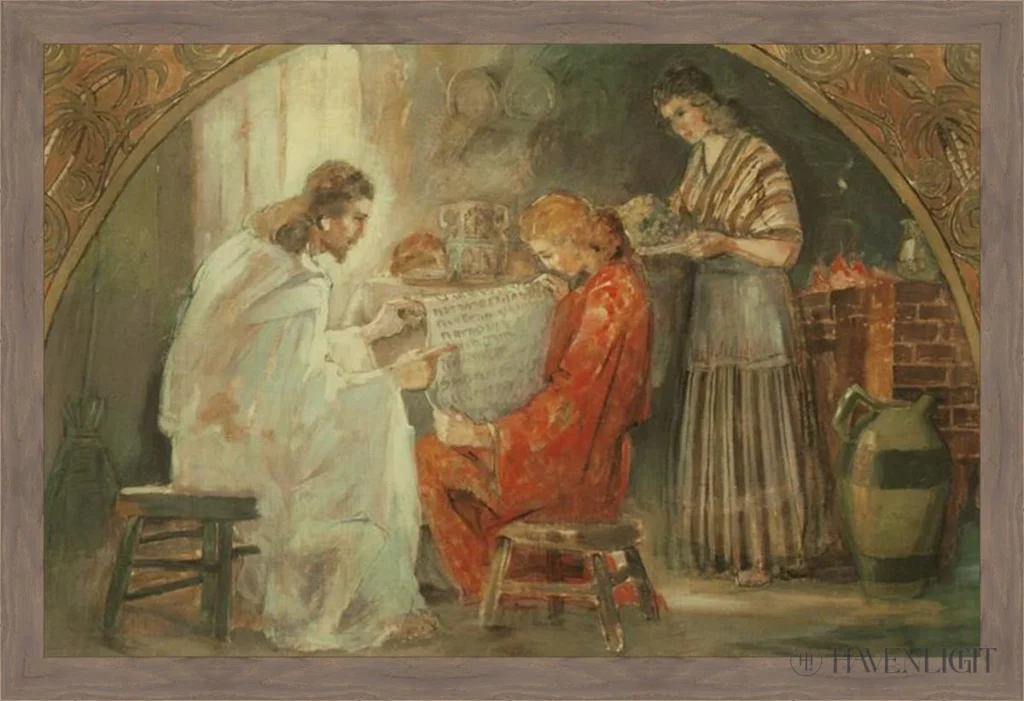(The title of this post comes from the movie, An American Quilt. This post is written in binary terms and focuses more on American and European women in general, but can also apply to women across the globe.)
Got frenemies?
Ok, I confess. I used to watch “The Real Housewives of New York City.” My husband caught me sneaking a peek and sat down to watch with me. Within five minutes he proclaimed, “Oh, c’mon … this is so fake! Women aren’t really that manipulative and catty.” My response, “Oh, yes they can be!” He didn’t believe me …. and why should he? He’s a man. Regardless, I’ve asked myself many times: Why are women our best friends, but also, at times, can be our worst enemies? As a counselor in a California stake Relief Society presidency, I conference with various ward Relief Society presidencies and board members. Repeatedly, I hear this theme: “The sisters in our ward are wonderful women, but we have a real problem with pettiness and meanness toward each other.” Yes, we women surely have a great capacity to love and nurture each other … and we can also be mean and snotty. Our individual “pettiness radars” can often spot a “mean girl” (or woman) from a distance. Ironically, our personal radar often malfunctions when gauging our own potential meanness (or real meanness) toward other women and individuals. We often don’t see our behavior or attitudes as being mean or petty—or we justify and continue our meanness or pettiness anyway. Truly, with one push of a sensitive button, we can morph into the “grown-up” version of manipulative, snotty little “Mean Girls.” Obviously, we hold enormous power over each other. So how can we use our power in more righteous, ethical ways? My next few posts will address this issue.

“Women Gossiping” by Albert Felderhelt
I am aware of the “danger” and taboo against speaking so frankly about a dark side of our Latter-day Saint sisterhood (and many Western women in general). I also realize that this post might generate criticism from other women and non-binary individuals. I don’t mean to offend or exclude; however, this post necessitates a discussion using more specific identities and terms involving Western and American culture and its traditional proclivities.)
In any case, I no longer cry “crocodile tears” when other women disapprove of me. Still, I feel a need to raise a type of “standard of liberty” to hopefully help emancipate ourselves from these subversive, mean-spirited oppressive behaviors that we often knowingly or unknowingly inflict upon each other. In denying and refusing to truthfully and genuinely speak to each other about our annoyance, anger, resentment, (or whatever) toward each other, we are often compelled to communicate through a mask of inauthentic “niceness.” Unfortunately and ultimately, this type of masking undermines genuine niceness; instead it can take the form of indirect aggression. And it can be very demoralizing. Like Dr. Phil says, “We can’t change what we don’t acknowledge.” Our denial serves to feed the dysfunction. (And I surely include my negative behaviors in this post as well.) Hopefully, we can obtain greater self-awareness, discipline, and courage to learn new communicative skill sets in order to minimize, if not eradicate any real or potential destructive thought and behavior patterns among us. Furthermore, when we claim complete innocence of (and in) our individual participation in negative dynamics, we are not being honest—with ourselves or others.

“Mary and Martha” by Minerva Teichert
I teach interpersonal communication, critical thinking, argumentation/debate, and other courses at a California state university. Communication study is what I do—it’s my thing. Consequently, I know the games people play (especially pertaining to Western women), and I know how to play them. I don’t say this to boast nor to confess; I do have a point: Peacemaking and peacekeeping require every bit as much strategy, skill, and energy as conflict/war. Peacemaking isn’t the absence of conflict, but the presence of fairness and justice. Moreover, justice is effortful and fueled through positive energy rather than negative. Hence, I try hard to use my communication skills in attempts to set and maintain peaceful emotionally healthy boundaries for healthy interactions and relationships. At the end of the semester, I encourage my students to use their newly acquired skills in productive, constructive ways. Obviously, these same principles can apply to small groups, larger communities, and global interactions.

Artist: Inman Maleki
As “sisters in the gospel,” we like to think (or at least hope) we refrain from sabotaging or hurting each other. Often times, we don’t. When another woman feels threatening to us, has offended or emotionally hurt us, we might act out our fear and hostility through the following attitudes and/or behavioral patterns involving self-pity, unrealistic or perfectionist expectations of others, expressing or feeling petty, self-righteous, or harsh judgment toward the woman who hurt us. The woman/women we target (or who might target us) can be a casual acquaintance in our ward, women we work with in our church callings, co-workers, family, or our close girlfriends.
Can I share a bit of my own history? By the time I reached my mid 30s, I backed off in my friendships with women. I had spent too much time and negative energy feeling hurt, vengeful, angry, and defensive toward—get this—some of my close women friends! (I totally get the term “frenemies.”) I resented the judging and comparing. For sure, I had pushed back by gossiping about the women who hurt me. I had been a “sad sack” alright. Because of my fear in causing contention, I had relied on my negative behaviors instead of speaking candidly to the women who hurt me. And, perhaps they were too afraid to talk candidly to me. After all, speaking so directly and honestly wouldn’t be considered “nice.” (As if gossiping is any nicer . . . ) A few years later, I decided I still wanted closer connections to women friends. And I do have wonderful, nurturing women friends. But here’s the difference: Having consciously worked to spiritually and emotionally evolve, I now have a greater capacity to live and love without needing the approval of women. If women have issues with me, I don’t personalize it as much anymore; I have found that like me, many women’s pettiness or hostility stems from their own insecurities as they compare themselves to other women. Surely, each of us deals with some form of insecurity. However, measuring ourselves to other women only serves to increase our anxiety and resentment toward them and toward ourselves. When we choose to stop our harsh measurement and labels of other women as “less than me,” “the same as me,” or “better than me,” our resentment and anger will diminish and perhaps, vanish.

Artist: Daniel Gerhartz
I have learned to empower myself by refusing to hand my power over to other women and individuals—regardless of how outwardly kind or benign they appear to be toward me. When I finally decided to define myself on my own terms and by my own standards, I became my own best friend. In turn, I also became a much better friend. As I learned to set healthy boundaries my fear, vulnerability, and susceptibility to criticism, rejection, and gossip from other women no longer crippled me. I stopped trying to please and appease other women in order to be accepted or regarded as a “good” or “nice” LDS or Western woman. Instead, I decided to leave that judgment up to husband, my kids, and my Heavenly Father. They were the ones who mattered most. With increased self-respect, my insecurities no longer stifled my ability to love others unconditionally. Consequently, I now use my stake calling (when necessary) to negotiate and broker a more peaceful, healthy communication climate among the sisters in our stake.
American feminist and writer, Phyllis Chesler, in her book Woman’s Inhumanity to Woman discusses her ostracism from her fellow feminists for writing this particular book. (The latest edition of her book was published in 2009, but is still considered a classic in Western culture.) According to Ms. Chesler, her critics labeled her traitorous to the feminist cause for “outing” women’s oppression toward other women. Her feminist sisters insisted she stay within their ranks and talk the party line: Men were the total bad guys, not women. When Ms. Chesler pushed back at these labels and criticisms, she was shunned by many of her feminist “sisters.” By the same token, some of our Relief Society sisters may suffer a similar fate: Sometimes, we might feel threatened by other sisters who dare to be different. “Different” sisters dare to define themselves. They dare to question the unwritten behavioral rules/codes of their women friends and/or associates. They dare to be their authentic selves without getting unwritten “permission” or approval from the group. Often times, when targeted women confront the hostile woman or group, denial and/or a form of shunning can be the response. Ms. Chesler says thousands of studies show that when questioned or confronted, Western women tend to deny their subversive behavior. Women’s indirect aggression toward other women is their weapon of choice according to Ms. Chesler. Direct aggression is scarier, but easier to confront and therefore resolve. Again, most women don’t see direct confrontation as “nice.” Indirect meanness in the form of passsive-aggression is ultimately ineffective but considered more “polite.” Chesler discusses theses various subversive tactics:
Recent studies and crime statistics confirm that men are aggressive in direct and dramatic ways. Although most women are not directly or physically violent, women are highly aggressive but in indirect ways. The targets of such female aggression are not men—but other women and children (p. 2). Researchers in Europe, North America, and Australia have found that verbal and indirect aggression among girls and women includes name-calling, insulting, teasing, threatening, shutting the other out, becoming friends with another as revenge, ignoring, gossiping, telling bad stories behind a person’s back, and trying to get others to dislike that person (p. 3). As among men, power struggles among female peers can be very fierce“
(p. 380).
In my future posts, I will further my discussion regarding this issue. The painting I’ve showcased in this post is called “The Weavers” by Daniel Gerhartz. What do we weave? As Latter-day Saints, we surely weave both beautiful and not so beautiful (sometimes pretty ugly) threads into the fabric of our Relief Society and LDS community. Again, my intention is not to foster guilt or contention. I hope to strengthen our ties to each other. I end this post with Ms. Chesler’s words:
Given the reality of female oppression, how women treat each other matters more, not less. I want my readers to acknowledge that what women do or refuse to do for other women matters deeply. I want women to understand that we have real power over each other. I want women to use this power consciously and ethically“
(p. 6).
Here’s to weaving more healthy relationships,
Julie

